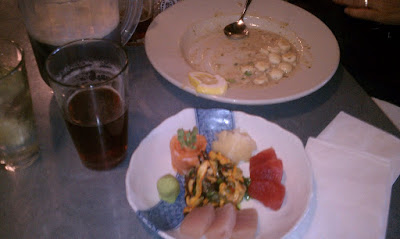“The small wins will soon become big
successes.” She read it out loud while they waited for the check to
come.
“Seriously, who talks like that?”
His glasses were slipping down his nose again.
She shrugged, he shook his head.
“Fortune cookies,” he said. “What
do they know, anyway?”
“Not much, I suppose.”
Where had the check gone? With the
waitress, of course. The real question, then, was where had the
waitress gone?
He pushed his glasses back up his nose,
she stared at the slip of paper in her hands. As if a cookie could
tell fortunes. As if anyone could tell fortunes.
Still, it had been a good meal. That
counted as a small win, right?
“Who's even talking in this
scenario?” he asked. “Is it supposed to be the cookie?”
“Probably the person who wrote it.”
“If it's the cookie, wouldn't the
fortune be more like, 'Hey there, don't eat me!'?”
“You're assuming the cookie is
sentient.”
“Wait, you think someone wrote this?”
“Someone came up with the idea.
Someone else wrote it. Actually, a machine, I'd guess.”
“But not a sentient machine?”
“Probably just one that spits out
whatever the input is.”
That made sense, in a trivial sort of
way. It was less satisfying than the food but more satisfying than
the service. Where had she gone?
He glanced over his left shoulder.
Nope, not there. Strange, the entire place had grown quiet. In fact,
they were the only ones in the restaurant. There wasn't even any
noise coming from the kitchen. Was there even a kitchen?
“You notice anything unusual?” he
asked.
She looked around. “I don't see
anything.”
“And?”
“I guess we don't have to pay.”






























